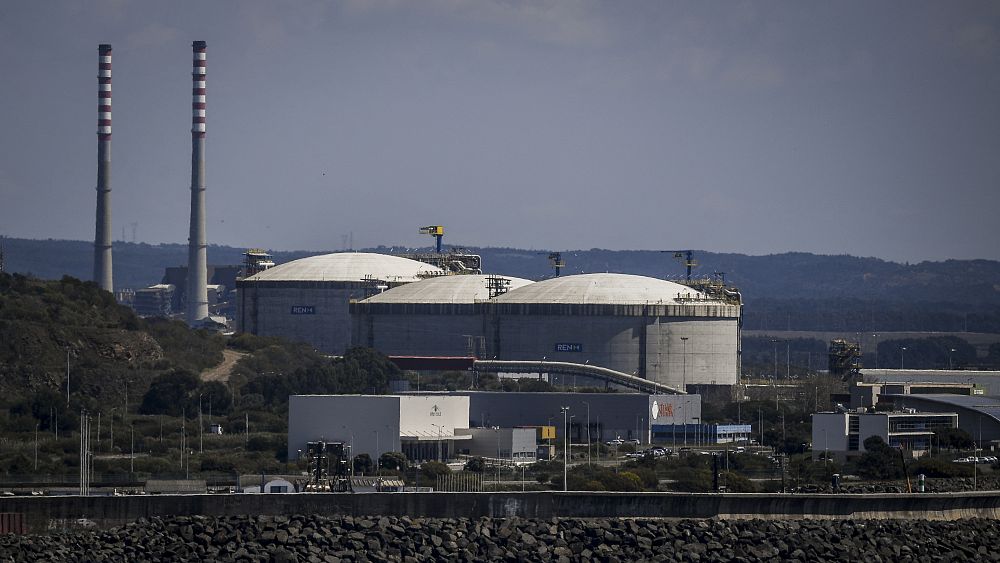Portugal and Spain welcome Scholz’s call for gas pipeline from Iberia to central Europe

Portugal and Spain have welcomed a call from the German chancellor for a gas pipeline linking the Iberian peninsula to central Europe, against the backdrop of the energy crisis caused by Russia’s war in Ukraine.
Olaf Scholz said on Thursday that Europe was “sorely” lacking such an interconnection via France, which he said would help relieve and ease the supply of gas.
Portuguese Prime Minister Antonio Costa said the German leader’s comments would strengthen the pressure on European institutions to make progress on the pipeline, which he described as “a priority” for his country.
“Portugal can play an important role” in helping to make Europe “energy self-sufficient” regarding Russia, Costa said, explaining that Portugal and Spain could send a lot of the liquefied natural gas, or LNG, they receive from around the world to other EU countries.
“Spain is well prepared,” Spanish Industry Minister Reyes Maroto told Antena 3 television on Friday. “We hope that if the German chancellor’s proposal prospers, we will have better gasification and more interconnections in Europe so as not to depend on Russian gas and be self-sufficient energy wise.”
The Portuguese leader also claimed that European authorities were considering an alternative project to build a pipeline linking Spain to Italy directly, as a way of getting round French objections on environmental grounds to a gas link across the Pyrenees.
Costa gave no further details, but such an undersea pipeline would likely take years to complete.
EU countries have struggled to find common ground on how to wean the bloc off its reliance on Russian natural gas. Vladimir Putin has weaponised gas exports to pressure the bloc into reducing its sanctions against Moscow.
The Russian leader has already cut off gas exports to more than a dozen EU nations and reduced supply to Germany, heavily reliant on Russian gas for its industry. European officials fear he could cut off exports to most of Europe over the winter.
Spain and Portugal receive LNG via pipeline from Algeria and Morocco, and by ship from countries such as the United States and Nigeria. But energy connections between Spain and Portugal and rest of Europe are lacking.
“The Iberian peninsula has capacity to replace a large part of the liquefied natural gas that central Europe today imports from Russia,” Costa told reporters.
Spain has six LNG plants — including Europe’s largest, in Barcelona — while Portugal has one. Between them they account for a third of Europe’s LNG processing capacity.
Costa said the Iberian plants could also send more LNG by ship to other European ports while a pipeline is being built.
The Portuguese leader pointed out that the port of Sines, located about 100 kilometres south of Lisbon, could be used as a logistics platform “to speed up the distribution of liquefied natural gas in Europe” and thus “relieve the congestion in the ports of northern Europe”.
A gas pipeline project between the Catalonia region in north-east Spain and south-east France was launched in 2013, then abandoned due to a lack of agreement on financing and real support from France.
Olaf Scholz said on Thursday that he had been in talks with Spain, Portugal, France and the European Commission about a new project, which he argued would “make a massive contribution to relieving and easing the (gas) supply situation”.
